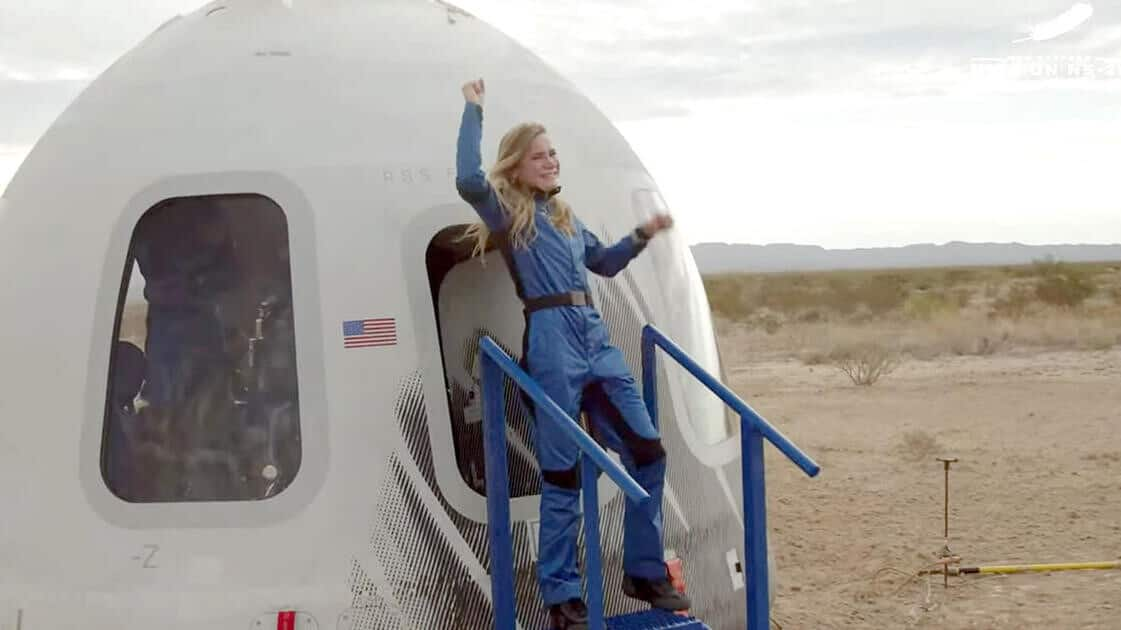
21-year-old makes history as youngest woman in space
What's the story
Blue Origin has successfully completed its eighth crewed spaceflight.
The mission included six passengers: Rob Ferl, a researcher from the University of Florida; philanthropist Nicolina Elrick; adventurer Eugene Grin; Elman Jahangir, a cardiologist; Ephraim Rabin, an American-Israeli entrepreneur; and Karsen Kitchen, a senior at the University of North Carolina.
Interestingly, Kitchen, at 21, is now the youngest woman to fly in space.
The launch took place yesterday at 9:07am EDT (6:37pm IST) from Jeff Bezos's west Texas launch site.
Rocket details
New Shepard rocket powers Blue Origin's spaceflight
The New Shepard crew capsule, powered by a single-stage hydrogen-fueled rocket, was launched straight up and through a deck of clouds.
It reached a top speed of 3,600km/h before the launcher's BE-3 engine shut down.
The crew then experienced around three minutes of weightlessness and enjoyed breathtaking views of Earth, as the capsule ascended to an altitude of about 345,000 feet or 105km.
Space boundary
Spaceflight surpasses internationally recognized boundary
Both NASA and the US Air Force recognize 80km as the arbitrary "boundary" of space, above which an aircraft's wings, rudder, and other aerosurfaces are no longer effective.
The internationally recognized boundary is 19.31km higher.
By either measurement, the New Shepard capsule touched the lower reaches of space during its trajectory.
Safe landing
Reusable booster lands safely post-launch
After propelling the crew capsule, the reusable booster returned to the Texas launch site, landing safely on a concrete pad.
The New Shepard capsule descended under three large parachutes for a relatively gentle touchdown at 9:17am (local time).
The entire journey from launch to landing lasted 10 minutes and eight seconds.
Upon exiting the spacecraft, the crew members were visibly thrilled as they embraced their loved ones with wide smiles and exclamations of joy.
Research mission
NASA-funded research conducted during spaceflight
Ferl conducted NASA-funded research during the New Shepard flight, to study how genes would react during the transition to and from weightlessness.
"The ride was incredibly smooth; I was so impressed with the ride up," he said after landing.
Ferl added that everything worked as expected and it could not have been a better experience.